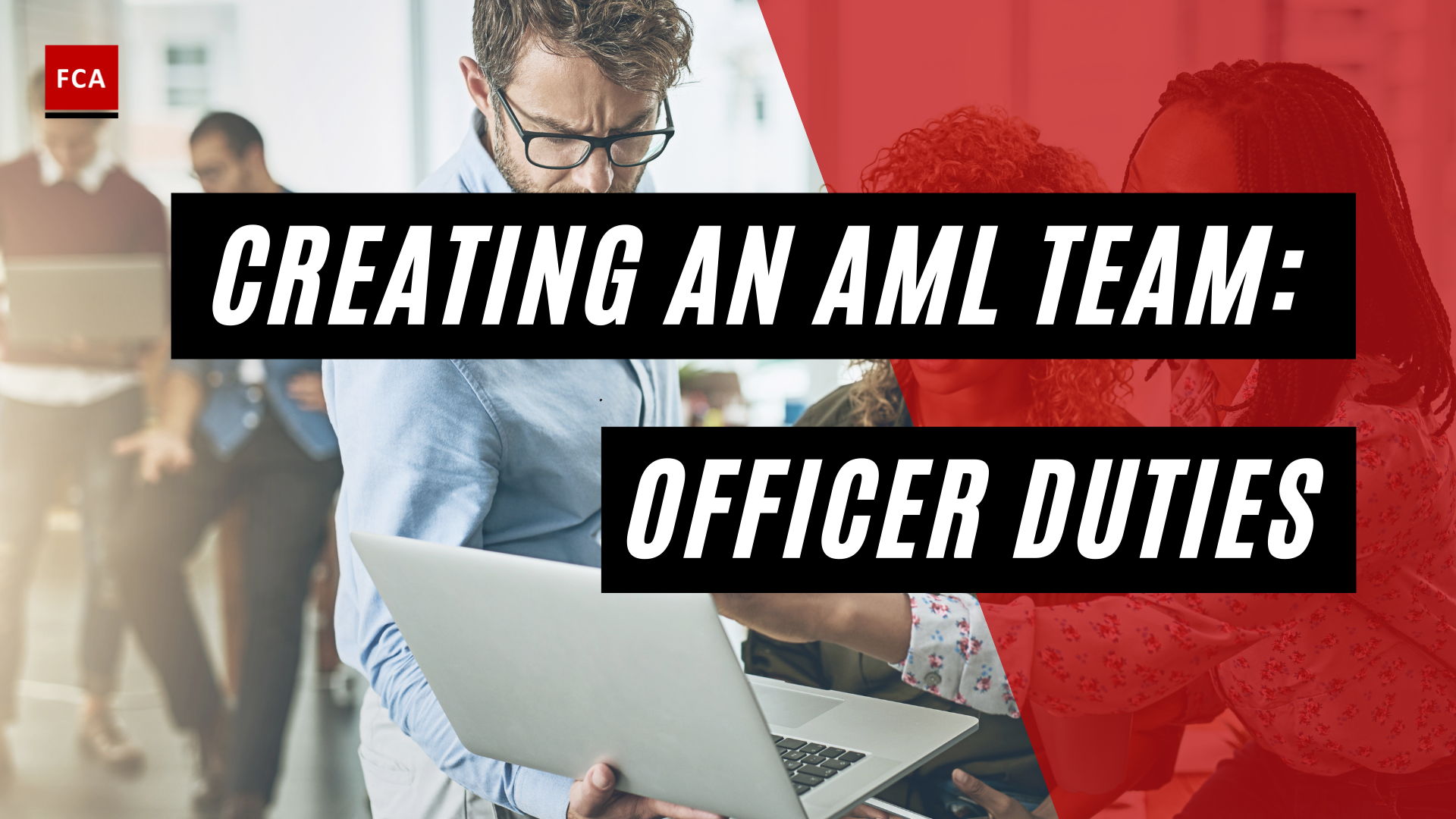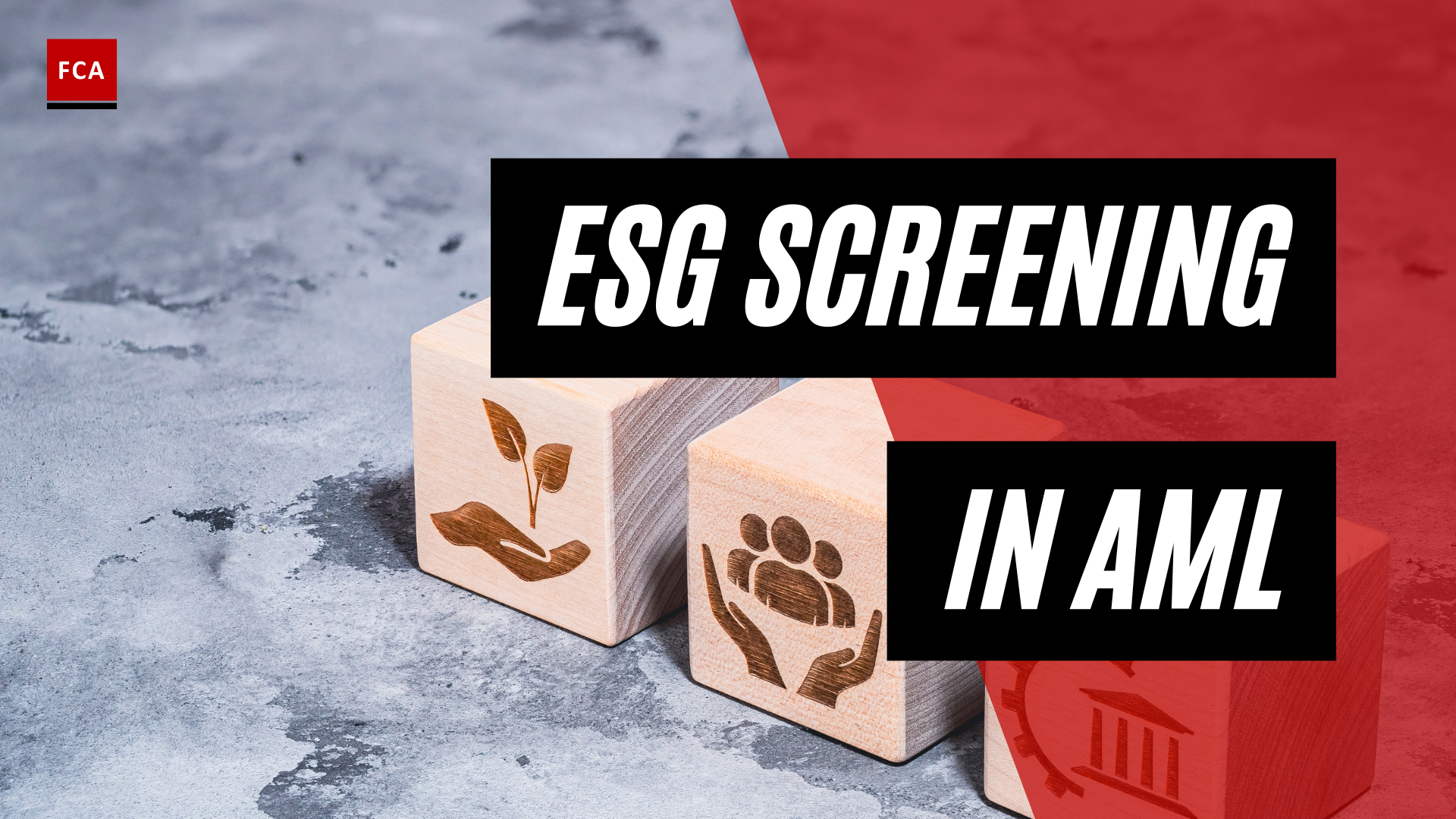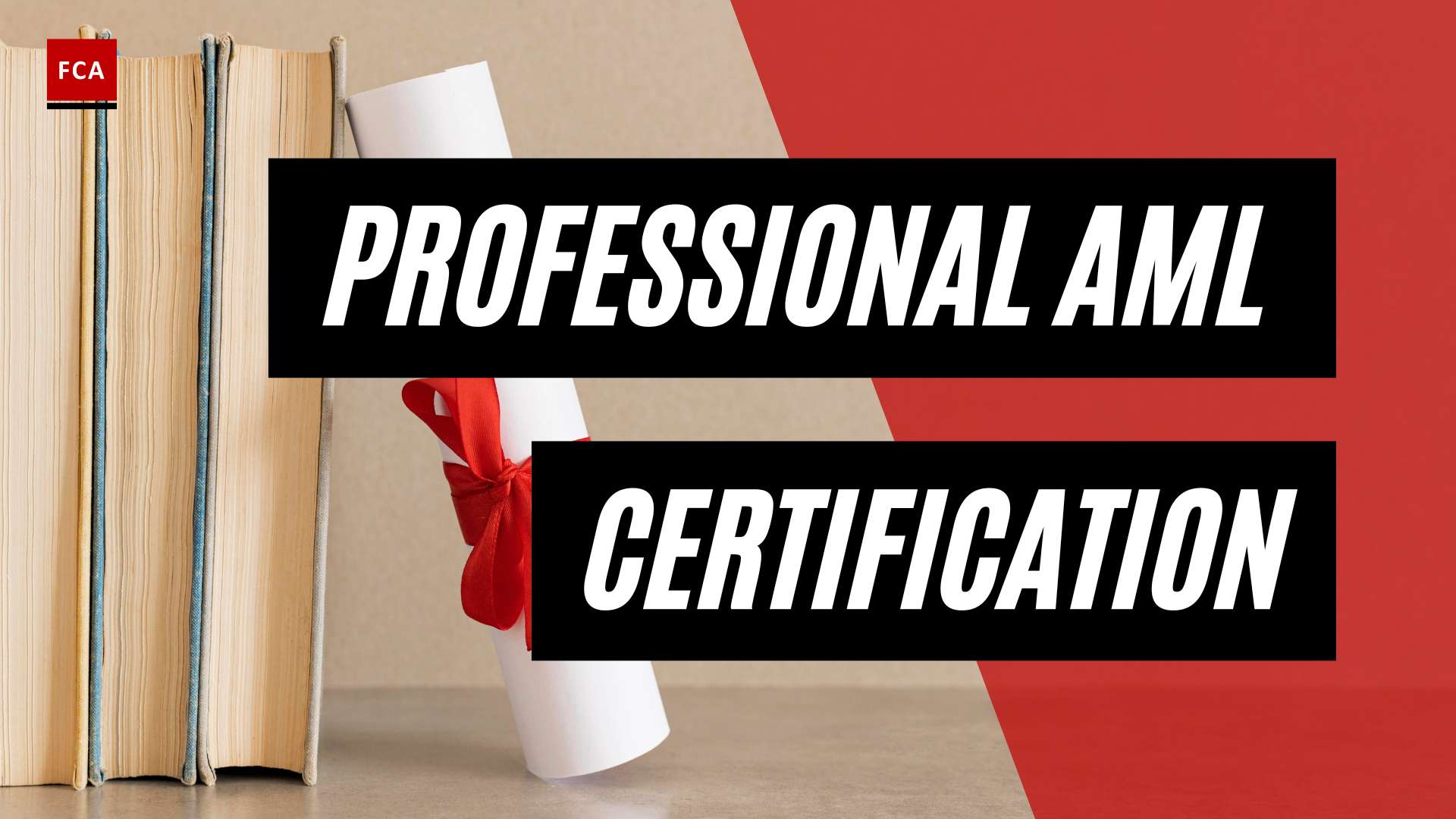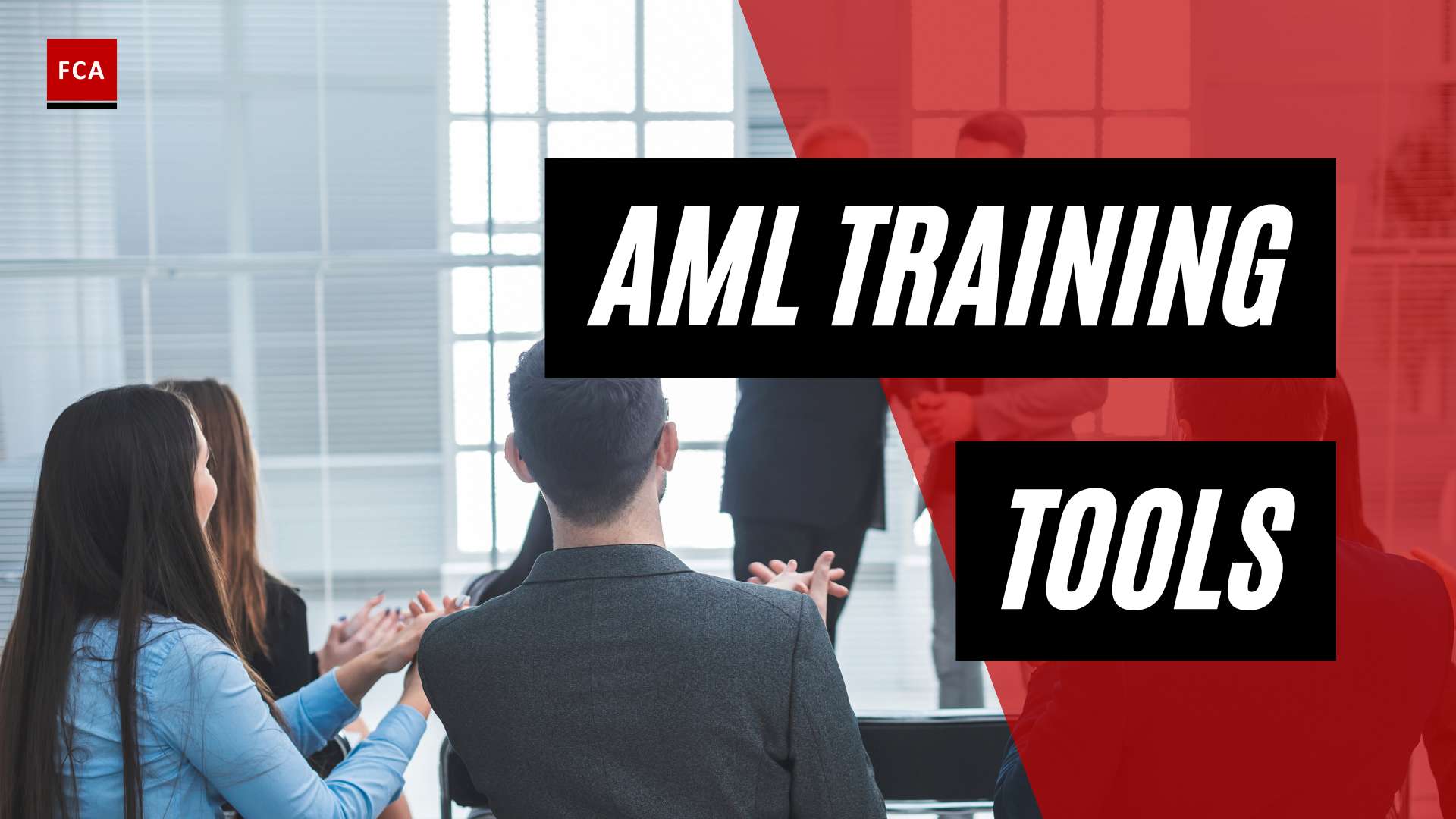AML Certification and Education
When it comes to careers in compliance, risk management, anti-money laundering (AML), and anti-financial crime, obtaining the necessary AML certification and education is paramount. AML certification demonstrates a professional’s knowledge and expertise in identifying and combating money laundering and other illicit financial activities. Additionally, AML education equips professionals with the skills and tools necessary to navigate the complex world of financial crime.
The Importance of AML Certification
AML certification is essential for professionals working in industries subject to AML laws and regulations. Organizations, such as financial institutions, require their employees to undergo AML certification to demonstrate their knowledge and commitment to preventing money laundering and other financial crimes (Investopedia). AML certification serves as a testament to an individual’s understanding of the industry, its processes, and the regulations that govern it. It provides professionals with the necessary skills to identify and report suspicious activities that could be linked to money laundering or fraud.
Advantages of AML Education
AML education goes beyond certification and provides professionals with a deeper understanding of the intricacies of AML regulations, compliance requirements, and risk management strategies. By pursuing AML education, professionals gain valuable insights into the latest trends and techniques used by money launderers, enhancing the effectiveness of anti-money laundering efforts (Investopedia).
One popular option for AML education is the AML Foundations certification offered by the Financial Crime Academy (FCA). This certification is ideal for professionals new to the AML field, providing them with a solid understanding of the industry, its processes, and the regulations that govern it. It serves as a stepping-stone for individuals looking to further their AML education or pursue the CAMP certification in the future.
By obtaining AML certification and investing in AML education, professionals can stay up-to-date with the evolving AML landscape, develop specialized knowledge, and enhance their career prospects. The ongoing training and education associated with AML certification ensure that professionals are equipped to tackle the challenges of money laundering and contribute to the prevention of financial crimes.
In the next section, we will explore the AML certification process, including the different certification levels and the requirements for eligibility and examination.
AML Certification Process
To achieve excellence in Anti-Money Laundering (AML) and enhance career prospects, professionals often pursue AML certification. This demonstrates their expertise in AML compliance and their commitment to staying updated with the latest industry standards. The AML certification process typically involves two main certifications: AML Foundations Certification and AML Specialist Certification.
AML Foundations Certification
The AML Foundations Certification is the starting point for individuals interested in AML. This certification process requires completing a one-module course, which typically takes around 16 hours to finish. The course covers fundamental concepts and principles of AML compliance, providing a solid foundation for professionals entering the field.
To earn the AML Foundations Certification, participants must pass the AML Foundations certification exam with a score of 70% or higher. This exam evaluates their understanding of the course material and ensures they have acquired the necessary knowledge to navigate the AML landscape successfully.
Recognized AML Certifications
When it comes to gaining recognition and demonstrating expertise in the field of anti-money laundering (AML), obtaining a recognized AML certification is essential. These certifications provide professionals with the knowledge and skills necessary to navigate the complex world of financial crime prevention. Let’s explore two prominent AML certifications: CAMP Certification and other AML certifications.
CAMP Certification
The Certified Anti-Money Laundering Professional (CAMP) certification, offered by the Financial Crime Academy (FCA), is widely recognized and respected in the industry. This certification is designed for individuals who work in compliance, risk management, and the prevention of money laundering and terrorist financing.
To earn the CAMP certification, candidates must pass the CAMP exam. The exam covers various topics including risk management, compliance, money laundering, terrorist financing, and fraud. It tests candidates’ understanding of anti-money laundering principles and their proficiency in AML compliance.
By obtaining the CAMP certification, professionals can demonstrate their expertise in the AML field, enhancing their credibility and career prospects.
AML Regulations and Laws
To effectively combat money laundering and financial crimes, various regulations and laws have been established both at national and international levels. Understanding these regulations is crucial for professionals working in compliance, risk management, anti-money laundering, and anti-financial crime. Here are some key AML regulations and laws:
Bank Secrecy Act (BSA)
The Bank Secrecy Act (BSA), established in the United States in 1970, was the first anti-money laundering legislation. Over time, the BSA has undergone various changes and has been strengthened by new anti-money laundering regulations. The BSA sets requirements for financial institutions to implement AML programs, report suspicious activities, and maintain records to prevent money laundering (Dumpsgate).
Global Financial Action Task Force (FATF)
The Global Financial Action Task Force (FATF), founded in 1989, is an international organization that develops and promotes anti-money laundering prevention standards globally. The FATF plays a significant role in the fight against financial crimes on an international scale. It sets recommendations and guidelines for countries to develop effective AML frameworks and encourages international cooperation in combating money laundering (Dumpsgate).
International Monetary Fund (IMF)
The International Monetary Fund (IMF) is an organization that aims to safeguard the stability of the international monetary system. In the global fight against money laundering and financial crimes, the IMF plays a crucial role by providing guidance, conducting assessments, and assisting member countries in strengthening their AML frameworks. The IMF’s efforts contribute to a more secure financial environment worldwide (Dumpsgate).
European Union AML Directives
The European Union (EU) has implemented several AML directives to prevent financial systems from being misused for money laundering purposes. The EU’s first anti-money laundering directive was implemented in 1990, and subsequent directives have been introduced to enhance AML measures and regulations within the EU member states. These directives aim to establish a more secure financial environment by harmonizing AML standards across the EU (Dumpsgate).
United Kingdom AML Laws
In the United Kingdom, various laws and regulations work collaboratively to establish a financial crime-free culture and combat money laundering effectively. These include the Proceeds of Crime Act (POCA), the Money Laundering Regulations, and other legislation that impose obligations on businesses to implement robust AML procedures. The UK’s AML laws aim to deter money laundering activities and protect the integrity of the financial system (Dumpsgate).
Understanding and complying with these AML regulations and laws is essential for organizations and professionals involved in the fight against money laundering. By staying up-to-date with the evolving landscape of AML regulations, professionals can contribute to creating a more secure and transparent financial environment.
AML Certification Resources
To embark on a successful career in anti-money laundering (AML) and gain the necessary expertise, professionals often seek out reputable certification programs and resources. Some of the notable resources in the field of AML certification include the American Bankers Association (ABA) and the Financial Crime Academy (FCA).
FCA Certification
The Financial Crime Academy (FCA) is a globally recognized organization that provides certifications and resources for professionals in the AML field. The FCA certification process requires candidates to pass the Certified Anti-Money Laundering Professional (FCA) exam. This comprehensive exam covers topics such as risk management, compliance, money laundering, terrorist financing, and fraud. Successful completion of the CAMP exam awards candidates the FCA credential, which is highly regarded in the industry.
CAMP Exam Coverage
The CAMP exam covers a wide range of topics related to AML and financial crime prevention. Some of the key areas covered in the exam include:
- Anti Money Laundering Foundations
- Counter Terrorist Financing
- AML/CTF Suspicious Activity Reports
- Anti-Money Laundering and Counter Terrorist Financing
Students are required to complete an online assessment (mostly multiple choice questions) at the end of each course. You can take the exams on your own schedule and will need to earn at least 60% to pass the course and earn your certificate of course completion.
Eligibility and Recommendations
The FCA certification process does not have specific eligibility requirements in terms of educational background. However, it is recommended that candidates have some experience in the AML field before attempting the exam to enhance their understanding and chances of success. FCA also provides study materials and resources to help candidates prepare for the exam, such as online training courses and practice questions.
The FCA certification programs are open to students and professionals in various industries and levels of experience. FCA curriculum is designed to teach what you need to know from basic fundamentals to advanced practical case studies.








